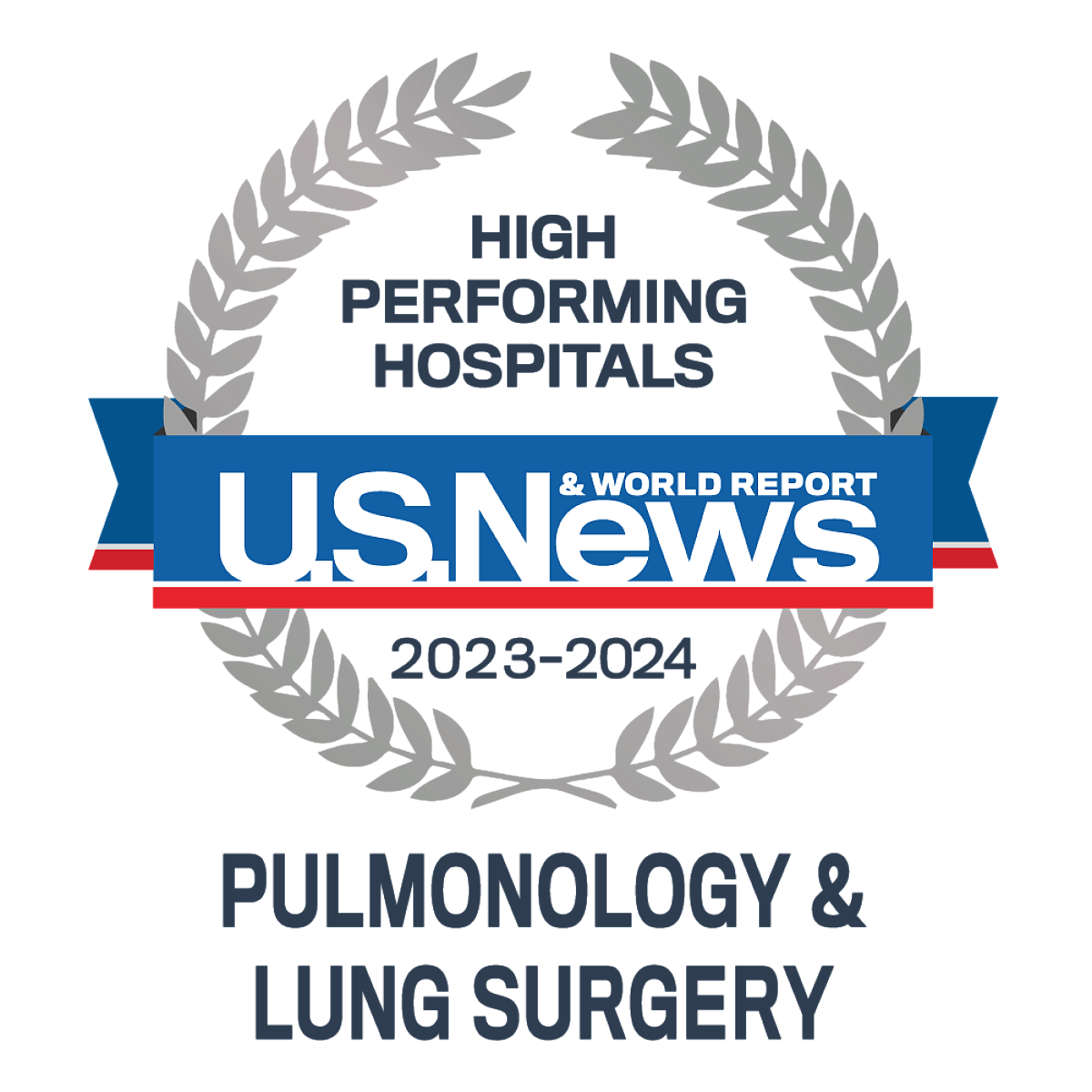What Is Pulmonary Critical Care?

Pulmonary critical care is a medical specialty that cares for critically ill patients at University of Utah Health. The patients that need critical care often are on a ventilator or need some other type of breathing help.
Patients may have multiple different conditions or accidents that need pulmonary critical care:
-
Acute respiratory illnesses (including COVID)
-
Declining chronic health conditions
-
Occupational exposures from mining, ranching, gas, oil, and similar professions
-
Exposure to pollutants
-
Complications from other infections
You may get pulmonary critical care in several different places:
-
Emergency room (ER)
-
Intensive care unit (ICU)
-
Operating room (during surgery)
Why Choose U of U Health For Pulmonary Critical Care?
U of U Health is the largest academic medical center in the Mountain West. We treat patients who need urgent and critical care around the region. Patients arrive or transfer to our critical care unit from across the country.
Our team of critical care pulmonologists are a diverse group of experienced specialists. We have experience treating patients from different places and backgrounds. We understand and can treat a wide range of pulmonary and critical care conditions. Our pulmonary critical care specialists work with other physicians and specialists to provide the best possible care:
-
Cardiothoracic surgeons for heart and vascular conditions
-
Surgical Intensive Care for patients who need urgent care before or after surgery
-
Burn Intensive Care Unit (ICU) for patients who need therapy for extensive burns
-
Huntsman Cancer Institute ICU for cancer patients who need intensive care
What Does a Critical Care Pulmonologist Do?
A pulmonary critical care specialist treats all types of breathing and lung conditions. They are also trained as internal medicine physicians. They can diagnose and treat other types of organ failure:
-
Liver failure
-
Renal (kidney) failure
-
Septic shock (sepsis)
U of U Health pulmonologists work closely with other critical care physicians. They work with other specialists on complications that fall outside the scope of their training, such as heart failure.
Pulmonary Conditions We Treat
U of U Health critical care pulmonologists treat breathing conditions or lung diseases that need emergency care:
-
Pulmonary vascular disease
Respiratory Treatments & Pulmonary Procedures
Critical care pulmonologists mostly work with patients in emergency situations. They treat patients who cannot breathe on their own that need mechanical ventilation or other lifesaving care. They may perform different procedures:
-
Bronchoscopies—The pulmonologist inserts a thin tube through your nose or mouth into your lungs. On the end of the tube is a small camera. The camera allows your provider to check the tissues. They look for things like bleeding, obstructions, or infections.
-
Chest tube insertion—A flexible tube is inserted into your chest to drain fluid, blood, or air from the area around your lungs. The pulmonologist makes sure the tube stays in place during your treatment.
-
Intubations—The pulmonologist Inserts a tube into your mouth or nose to help you breathe. The tube is connected to a mechanical ventilator. The ventilator forces air in and out of your lungs, and keeps your trachea open to allow air movement. Most intubations are emergency procedures when a patient cannot breathe on their own.
-
Thoracentesis—This procedure removes air or fluid from the area around your lungs. Extra air or fluid in the pleural space can cause difficulty breathing and pain. A pulmonologist inserts a small needle through the chest wall to pull out air or fluid.
Respiratory Treatments at U of U Health
Our critical care pulmonologists have experience managing multiple breathing machines:
-
Mechanical ventilators
-
Noninvasive ventilators (CPAP or BiPAP)
-
High-flow oxygen
Find a Pulmonary Care Specialist
What to Expect During Pulmonary Critical Care
Most patients who need pulmonary critical care go to the emergency room or urgent care. Providers will diagnose you and call in a team. This team includes pulmonology critical care providers and others based on your needs. A pulmonary critical care specialist will work to stabilize you. They will work to find the cause of your respiratory failure.
Patients in the U of U Health ICU can expect to be in a single room with a dedicated care team. Nurses in the ICU usually work with just one or two patients. They coordinate with all the providers involved in your care. Your health care team may include several people:
-
One or more doctors
-
Fellows
-
Residents
-
Advanced practice clinicians, such as a physician assistant or nurse practitioner
A member of your team will provide multiple updates each day to a family member. You should have a single point of contact for the care team. The contact can share the information with other family members and loved ones as needed. One or two family members may be able to stay with you in the hospital overnight, depending on current visitation policies.
U of U Health also has a broad network of support services for patients and families in the ICU. Our social workers and care coordinators help with lodging, travel, and counseling. When you reach a certain point in your recovery, you may work with other specialists:
-
Occupational therapists
-
Respiratory therapists
-
Speech therapists
Learn More About Our Pulmonary Care
U of U Health offers extensive expertise and leading-edge treatment for all types of pulmonary conditions. Learn more about our pulmonary services.
